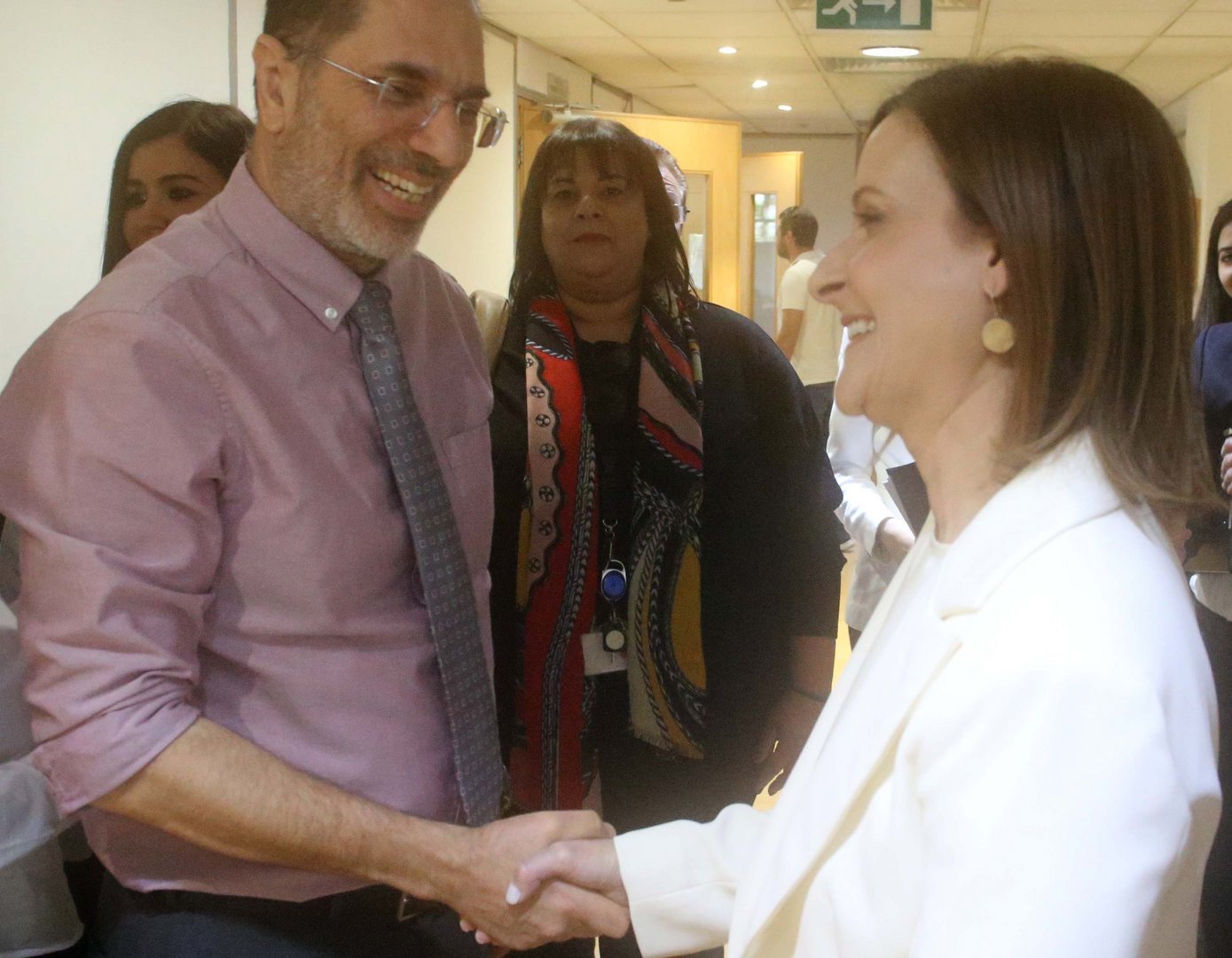MPs called for more transparency over the social support fund managed by the First Lady during Wednesday’s House ethics committee.
The bill was tabled by Disy MPs Nikos Georgiou and Kyriakos Hadjiyiannis, who argued the support body should keep a register and post a list on its website over its funding sources.
First Lady Philippa Karsera attended the session, which is the first time a First Lady was ever called to participate in a parliamentary committee meeting.
Karsera underlined that the fund was setup in 2013 when many students could not complete or start their studies due to the financial crisis.
Since 2014, there were 3,721 students helped with over €4 million paid out to help them cover their tuition fees or rent. “These students would not have been able to study without this fund,” the First Lady stressed.
This year, 1,340 applications have been filed where between 800 and 1,000 are expected to be approved and paid before Easter, she told deputies.
Karsera said this is a state fund where individuals and legal entities can make donations to help students. The fund has no expenses and as such, any donations are automatically translated to scholarships.
“I received adequate assurances from the outset and before I started work that the support fund was operating in a transparent manner and since there were no expenses or financial transactions, everything was operating properly.”
The First Lady underscored that due to the increased donations, for the first time this year a new category of beneficiaries was setup, which does not take into account income and property criteria.
It concerns children orphaned by both parents, children of enclaved persons, children under the state’s guardianship, children of Mari victims, the Helios tragedy, children of soldiers who died in the line of duty and children of single parents that have more than four dependents, as well as large families with more than five dependents.
Out of this category, 107 students benefited, which is what a just society has to do, Karsera said.
‘Strict oversight in place’
The First Lady underlined that donations are strictly monitored by the central bank, accountant general and auditor general.
“We all share the same goal and we will not hurt this fund. We will not hurt our children.”
She specified donors have a right to anonymity, and expressed the hope that any amendments to the law do not affect future donations.
Accountant general Andreas Antoniades who is the fund’s secretary, underlined that the sole account for the fund is at the central bank.
As such, the bank carried out ‘know your client’ and ‘anti money laundering’ checks, as part of its legal framework.
Around 90 per cent of donations came from Cyprus and 10 per cent from abroad, primarily from Cypriots living out of the country.
He said people may opt for anonymity for reasons of being humble, or also security amid concerns they may be asked to give their money elsewhere.
Saudi businessman donated €500,000
Personal Data Protection Commissioner, Irene Loizidou Nicolaidou said transparency and accountability can be served by making data public but not always.
Auditor general Odysseas Michaelides underlined that the government chose to use this solution rather than find institutional means to help people study.
“We find it dangerous to have too many support mechanisms,” as they give room for abuse, he said.
Michaelides specified there is currently no cap on donations and as such, the audit office cannot make any findings.
Nonetheless, he shared the example of a Saudi Arabian national who obtained a Cypriot passport along with 35 other people close to him that had previously offered his plane to former President Nicos Anastasiades.
A few months after he received his Cypriot passport, he donated €500,000 to the fund, the auditor said, underlying the service is in favour of transparency.







Click here to change your cookie preferences